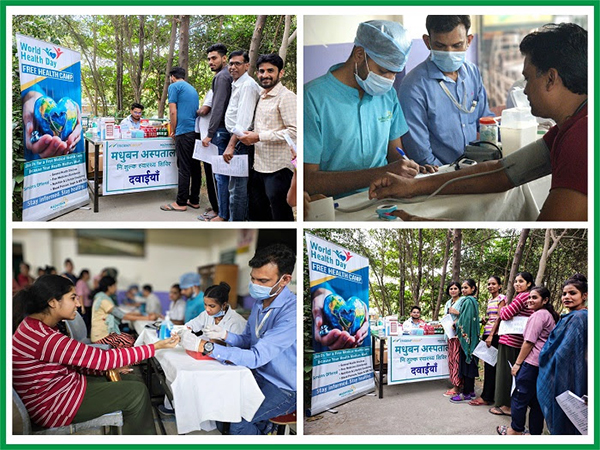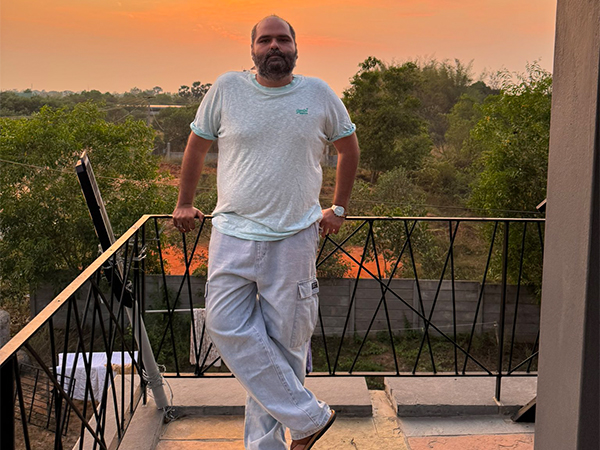In unity and remembrance: India pays tribute to Rawanda's 1994 genocide victims
Apr 08, 2024

New Delhi [India], April 8 : India marked its presence in the Rawandan capital city of Kigali for the 30th commemoration ceremony of the 1994 horrific genocide of the Tutsi by members of the Hutu majority government.
The Rwandan Patriotic Front (RPF) rebel group captured Kigali in July 1994 after a 100-day killing spree that started on April 7, 1994, and claimed the lives of almost 800,000 people, most of them Tutsis but also moderate Hutus, according to Al Jazeera.
Ministry of External Affairs Secretary (Economic Relations) Dammu Ravi, represented India in paying tributes to the victims of the horrific tragedy.
Sharing a post on X, the official spokesperson of MEA, Randhir Jaiswal, wrote, "Secy (ER) Dammu Ravi represented India at the 30th commemoration of the genocide on Sunday in Kigali."
"In solidarity with the people of Rwanda, India lit up the Qutub Minar today, marking the UN International Day of Reflection on the 1994 Genocide against the Tutsi in Rwanda," the post read.
On Sunday, the Qutub Minar was lit up with the colours of the Rwandan national flag in solidarity with the people of the east-African nation in remembrance of the 100-day massacre that claimed the lives of 800,000 people in 1994.
https://x.com/MEAIndia/status/1777026648971616508
Rwanda on Sunday marked 30 years of genocide orchestrated by armed Hutu extremists, who tore apart the nation. The 1994 Rwanda Genocide (Kwibuka 30) is considered one of the bloodiest massacres of the 20th century. India is among the few countries in the world which voiced its concerns to alert the world about the possibility of a genocide in Rwanda, as early as 1992. During the genocide of 1994, Indian soldiers, as a part of UNAMIR, sacrificed their lives in the line of duty.
On Sunday, Rwanda's President Paul Kagame led the commemoration by placing wreaths on the mass graves in Kigali. The event was flanked by several foreign dignitaries, including the South African leaders, as well as dignitaries from Ethiopia, as per a report in Al Jazeera. Also present was former US President Bill Clinton, who had called the genocide the biggest failure of his administration.
Notably, MEA Secretary Dammu Ravi is on a visit to Rwanda and Kenya from April 7-12. He is being accompanied by Additional Secretary (East and Southern Africa), Puneet R Kundal.
On Sunday Dammu Ravi called on MoS for Foreign Affairs James Kabarebe, Minister of Finance and Economic Planning Uzziel Ndagijimana and MoS for Agriculture Eric Rwigamba of Rwanda in Kigali.
"The discussions covered issues of bilateral interest," the ministry of external affairs wrote in a post on X.
"He is also expected to hold meetings with ministers and senior officials of the government of Rwanda," the MEA said in a press release.
India-Rwanda relations are marked by cordiality, convergence of views and cooperation on major international issues, an increasing trend in bilateral trade and investments, greater people-to-people contact and a deep sense of mutual respect.
In 1999, Rwanda established a High Commission in New Delhi. The first Rwandan High Commissioner to India was appointed in 2001. The High Commission of India in Kampala, Uganda, is concurrently accredited to Rwanda. Rwanda has also appointed two Honorary Consuls in India, viz, in Mumbai and
Bangalore.
Rwandan Prime Minister Bernard Makuza participated in the Vibrant Gujarat Summit in January 2011. During the visit, he called on PM Manmohan Singh. The Rwandan PM also met Narendra Modi, the then Chief Minister of Gujarat. Charles Murigande, Foreign Minister of Rwanda, visited India in March 2003. During the visit a General Agreement on Bilateral Cooperation was signed between India and Rwanda.
Further, the year 2006 saw the first ministerial visit from India to Rwanda. Then Minister for Small Scale Industries, Agro and Rural Industries, Mahabir Prasad, visited Rwanda in August 2006. AnMoU on Cooperation in Small Scale Industries was signed during the visit.




















